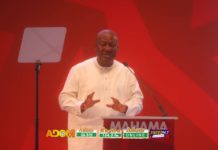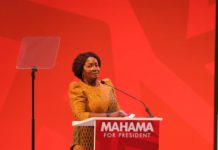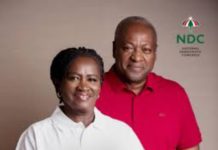The Member of Parliament (MP) for Bolgatanga Central, Isaac Adongo is claiming that Ghana’s economy has taken a backward turn and is in a reverse gear.
According to him, the Akufo-Addo government has failed in its approach to develop the economy and hence have been recording negative indices which has pushed the otherwise growing economy into a reverse gear.
The Bolga Central MP’s comments follows Finance Minister, Ken Ofori-Atta’s assurance that Ghana’s economy is bouncing back following prudent policies being pursued by the Akufo-Addo government.
The Finance Minister during the mid-year review presentation of the budget in Parliament yesterday claimed that macro-economic indicators for the first half of the year are pointing in the right direction.
“Progressively, confidence is being restored in the economy and we are hopeful that it will be sustained. The macro-indicators for the first half of the year are pointing in the right direction. We replaced the 17.5% standard rate to a 3% flat rate. We reduced the special petroleum tax from 17.5 to 15% and abolished duties on spare parts.
“The deficit on commitment basis is now on 10.9%, up from the previous 10.3%. In recent years, the country accumulated high debts; our debt stock increased to GhC122bn that is 1154%. We inherited a weak economy, characterised by high fiscal deficits,” the finance minister noted during the presentation of the 2017 budget review to Parliament Monday.
Reacting to this on Asempa FM’s Ekosii Sen Tuesday, Adongo said that there is a continuous decline in Ghana’s GDP and warned of a recession if the economy is not diversified.
“The statistics available at the end of the first half of the year shows that this is an economy in reverse gear. An economy that grew by 6.3 percent without oil has now grown by 3.9 percent the same period without oil.
“From Nkrumah, through Acheampong, Rawlings and Kufuor, no government has incurred this level of budget deficit. The crux of the problem is that government spending in 2012 increased astronomically to 34.5% of GDP, even though government revenues amounted to 16.1% of GDP (a gap of over 100%) for the year. The government abandoned all fiscal discipline in an attempt to win the 2012 elections.” He stressed.
According to him, the government’s inability to live by its prudent spending policy and excessive borrowing, accounts for the current economic situation in the country.
“That is an economy in reverse gear an economy that you find that we are borrowing so extensively that the first quarter alone we have borrowed $5 billion to add to our public debt and then every month from April we adding an additional $5 billion to our public debt. That is very frightening and that clearly states that this is an economy that is clearly on a life support” he stressed.
However, Deputy Information Minister Kojo Oppong–Nkrumah thinks otherwise.
He described the 2017 budget as the best budget so far and assured that this is the right budget to move the country out of its current predicament.
He said the budget was concise, business-friendly and people-centered, which had resonated in the country.
Mr Oppong–Nkrumah posited that the budget, which indicated the government’s decision to remove some taxes and reduce other taxes, would lower the cost of doing business, spur economic growth and create jobs.
In 2017, the MP for Ofoase/Ayirebi explained that the economy was projected to grow at 6.5 per cent, and indicated that it was the first time in six years that the country would be recording such an economic growth.
On the current depreciation of the cedi, he argued that in the first quarter of every year, the cedi depreciated on the average by five per cent.
He indicated that government has reiterated its commitment to creating an enabling environment for Ghanaian businesses.





